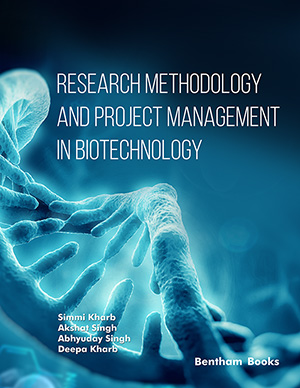
Abstract
Intra- and extracellular protein misfolding and aggregation is likely to contribute to a number of age-related central nervous system diseases (“proteinopathies”). Therefore, molecular chaperones, such as heat shock proteins (HSPs), that regulate protein folding, misfolding and adaption to cellular stress are emerging as therapeutic targets. Here we review the current knowledge of HSP-modulating drugs and discuss the opportunities and difficulties of their therapeutic use to treat proteinopathies such as Alzheimers- and Parkinsons disease, the polyglutamine- and prion disorders and Amyotrophic Lateral Sclerosis.
Keywords: Protein misfolding, neuroprotection, proteinopathies, molecular chaperones
Current Pharmaceutical Biotechnology
Title: Heat Shock Proteins: Therapeutic Drug Targets for Chronic Neurodegeneration?
Volume: 11 Issue: 2
Author(s): M. U. Sajjad, B. Samson and A. Wyttenbach
Affiliation:
Keywords: Protein misfolding, neuroprotection, proteinopathies, molecular chaperones
Abstract: Intra- and extracellular protein misfolding and aggregation is likely to contribute to a number of age-related central nervous system diseases (“proteinopathies”). Therefore, molecular chaperones, such as heat shock proteins (HSPs), that regulate protein folding, misfolding and adaption to cellular stress are emerging as therapeutic targets. Here we review the current knowledge of HSP-modulating drugs and discuss the opportunities and difficulties of their therapeutic use to treat proteinopathies such as Alzheimers- and Parkinsons disease, the polyglutamine- and prion disorders and Amyotrophic Lateral Sclerosis.
Export Options
About this article
Cite this article as:
Sajjad U. M., Samson B. and Wyttenbach A., Heat Shock Proteins: Therapeutic Drug Targets for Chronic Neurodegeneration?, Current Pharmaceutical Biotechnology 2010; 11 (2) . https://dx.doi.org/10.2174/138920110790909641
| DOI https://dx.doi.org/10.2174/138920110790909641 |
Print ISSN 1389-2010 |
| Publisher Name Bentham Science Publisher |
Online ISSN 1873-4316 |
Call for Papers in Thematic Issues
Artificial Intelligence in Bioinformatics
Bioinformatics is an interdisciplinary field that analyzes and explores biological data. This field combines biology and information system. Artificial Intelligence (AI) has attracted great attention as it tries to replicate human intelligence. It has become common technology for analyzing and solving complex data and problems and encompasses sub-fields of machine ...read more
Latest Advancements in Biotherapeutics.
The scope of this thematic issue is to comprehensively explore the rapidly evolving landscape of biotherapeutics, emphasizing breakthroughs in precision medicine. Encompassing diverse therapeutic modalities, the issue will delve into the latest developments in monoclonal antibodies, CRISPR/Cas gene editing, CAR-T cell therapies, and innovative drug delivery systems, such as nanoparticle-based ...read more
Machine Learning and Artificial Intelligence for Medical Data Analysis and Human Information Analysis in Healthcare
The intersection of machine learning (ML) and artificial intelligence (AI) with the pharmaceutical industry is revolutionizing traditional paradigms in drug discovery and development. These technologies have introduced innovative approaches to analyzing complex datasets and predicting chemical properties, leading to more efficient identification and optimization of drug candidates. By employing sophisticated ...read more
 22
22
- Author Guidelines
- Graphical Abstracts
- Fabricating and Stating False Information
- Research Misconduct
- Post Publication Discussions and Corrections
- Publishing Ethics and Rectitude
- Increase Visibility of Your Article
- Archiving Policies
- Peer Review Workflow
- Order Your Article Before Print
- Promote Your Article
- Manuscript Transfer Facility
- Editorial Policies
- Allegations from Whistleblowers
Related Articles
-
Axonal Ionic Pathophysiology in Human Peripheral Neuropathy and Motor Neuron Disease
Current Neurovascular Research RNA G-Quadruplex: The New Potential Targets for Therapy
Current Topics in Medicinal Chemistry Stem Cells: An Overview of the Current Status of Therapies for Central and Peripheral Nervous System Diseases
Current Medicinal Chemistry Optimization of Lentiviral Vectors Generation for Biomedical and Clinical Research Purposes: Contemporary Trends in Technology Development and Applications
Current Gene Therapy Spinal Cord Injury Changes Cytokine Transport
CNS & Neurological Disorders - Drug Targets Memory-Enhancing Drugs: A Molecular Perspective
Mini-Reviews in Medicinal Chemistry Raf Inhibitors as Therapeutic Agents Against Neurodegenerative Diseases
CNS & Neurological Disorders - Drug Targets Serotonin 1A Receptors on Astrocytes as a Potential Target for the Treatment of Parkinson’s Disease
Current Medicinal Chemistry Endocannabinoid Receptors in the CNS: Potential Drug Targets for the Prevention and Treatment of Neurologic and Psychiatric Disorders
Current Neuropharmacology Role of Long Non-coding RNAs in the Pathogenesis of Alzheimer’s and Parkinson’s Diseases
Current Aging Science The Effects of Curcumin on Astrocytes in Common Neurodegenerative Conditions
Mini-Reviews in Medicinal Chemistry Neuroregeneration in Parkinson’s Disease: From Proteins to Small Molecules
Current Neuropharmacology Cannabinoids: Between Neuroprotection and Neurotoxicity
Current Drug Targets - CNS & Neurological Disorders Immunomodulatory Activity of Mesenchymal Stem Cells
Current Stem Cell Research & Therapy Do Epigenetic Pathways Initiate Late Onset Alzheimer Disease (LOAD): Towards a New Paradigm
Current Alzheimer Research Therapeutic Potential of Janus Kinase 3 (JAK3) Inhibitors
Current Pharmaceutical Design Circulating Advanced Oxidation Protein Products as Oxidative Stress Biomarkers and Progression Mediators in Pathological Conditions Related to Inflammation and Immune Dysregulation
Current Medicinal Chemistry Natural Antioxidants: Therapeutic Prospects for Cancer and Neurological Diseases
Mini-Reviews in Medicinal Chemistry Synthesis and Biological Properties of D-Amino Acids
Letters in Organic Chemistry The Involvement of Post-Translational Modifications in Alzheimer's Disease
Current Alzheimer Research
























